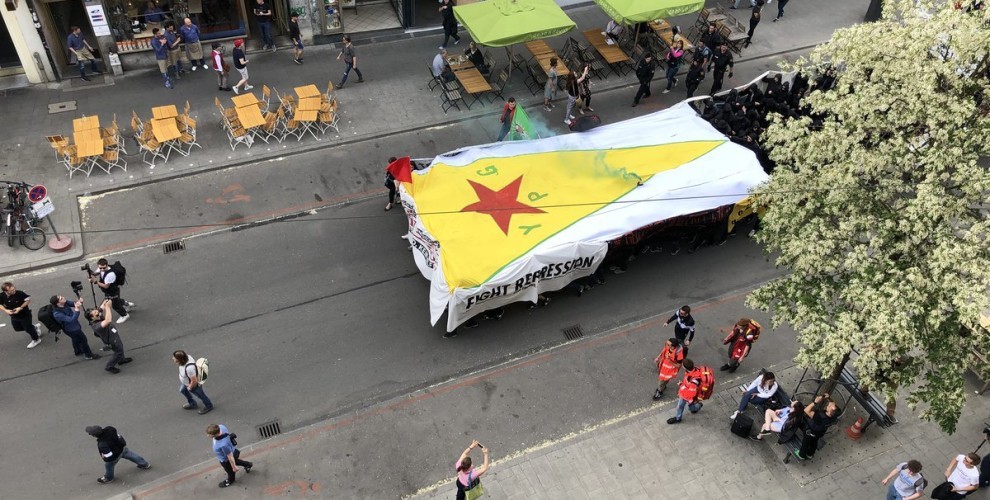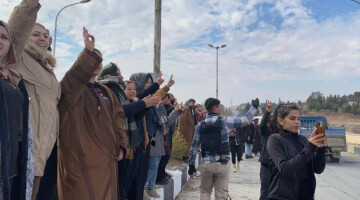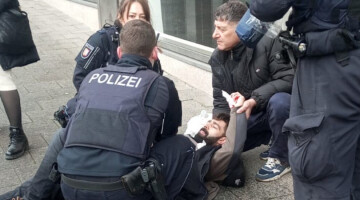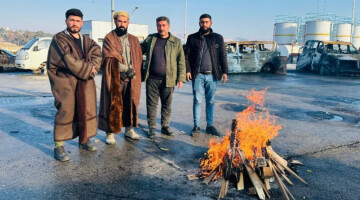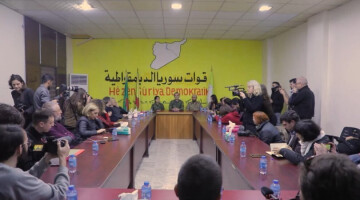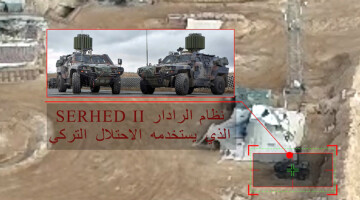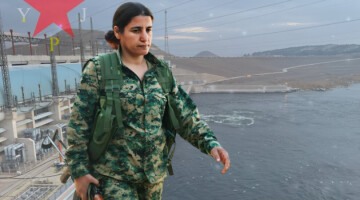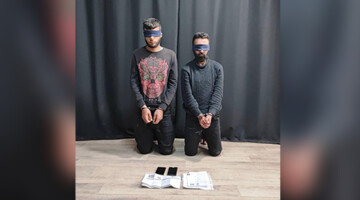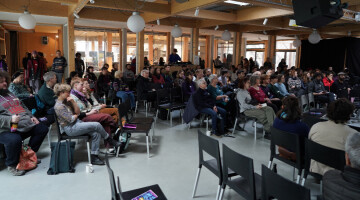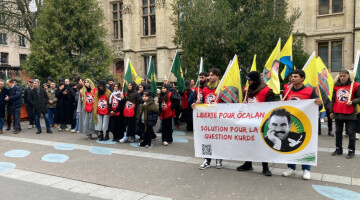The new “police state law” attempted to be passed in the state of Bavaria was protested with a mass demonstration in Munich. Over 30.000 people participated in the demonstration where a giant YPG flag was among the symbols used.
The conservative Christian Social Union (CSU) is in the government in the state of Bavaria where a new law is about to be passed that will lead the way to a “police state”. The “New police duties act” (PAG - Polizeiaufgabengesetz) will be voted next week in the state parliament where CSU, the “sister party” of Chancellor Merkel’s CDU, holds the majority.
The new law was prepared under the lead of former Bavaria Prime Minister Horst Seehofer, who serves as the Minister of Interior Affairs in the new Merkel government, and was protested with a mass demonstration in the state capital Munich yesterday. Over 30.000 protesters gathered in the central Marienplatz and marched to the Odeonsplatz square where the state prime ministry offices stand.
Over 70 NGOs, unions and opposition parties like the SPD and the Greens and the Left called for the demonstration which drew in crowds from all over Bavaria. Football fan clubs also supported the demonstration where participants protested the state government with diverse banners, costumes and slogans.
A group of protesters opened a giant YPG flag in the march. Bavaria is among the toughest implementers of the ban on Kurdish symbols including YPG flags. This attitude towards Kurds was also protested by the participants who carried the YPG flag.
LAW REMINISCENT OF THE NAZI ERA
The law in process in the state parliament gives the police the permission to intervene with constitutional rights without a court order. It is reminiscent of the Nazi regime in that it provides a wide authority to intervene with and control the private lives of state residents.
According to this law, the police can arbitrarily detain whoever they want without concrete suspicion. They can tap phones and confiscate electronic devices like phones and laptops that belong to suspects. The law also allows the police to use handcuffs in protest marches.

